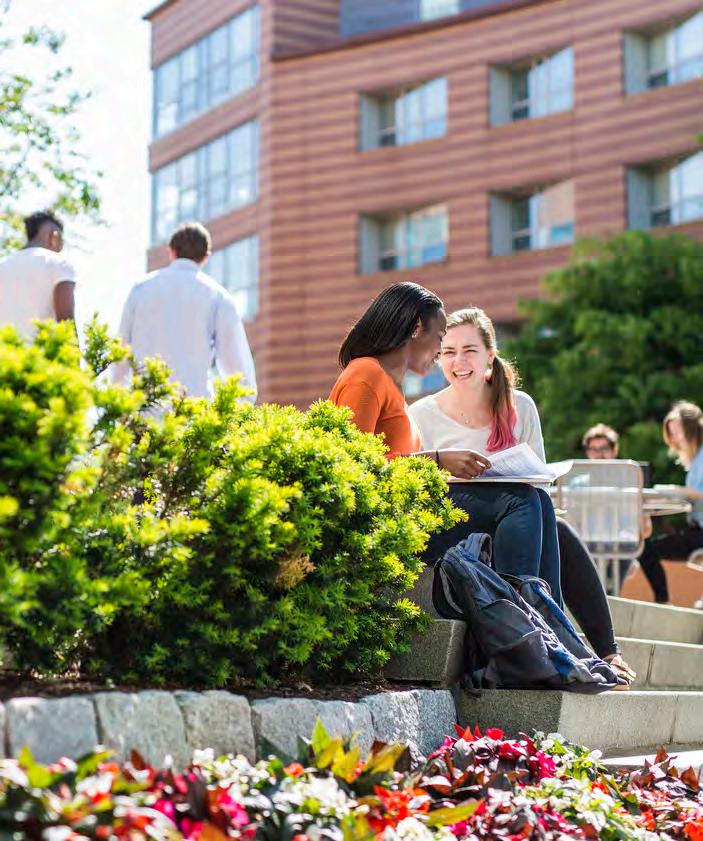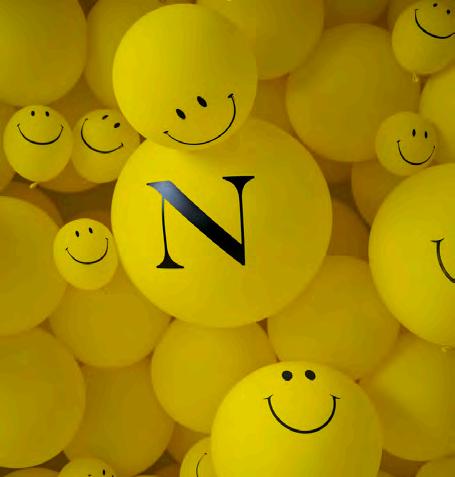


















Excellence in Academics, Experiential Learning, and Research
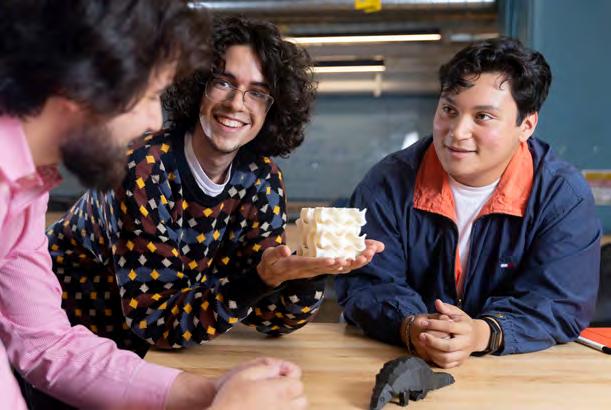
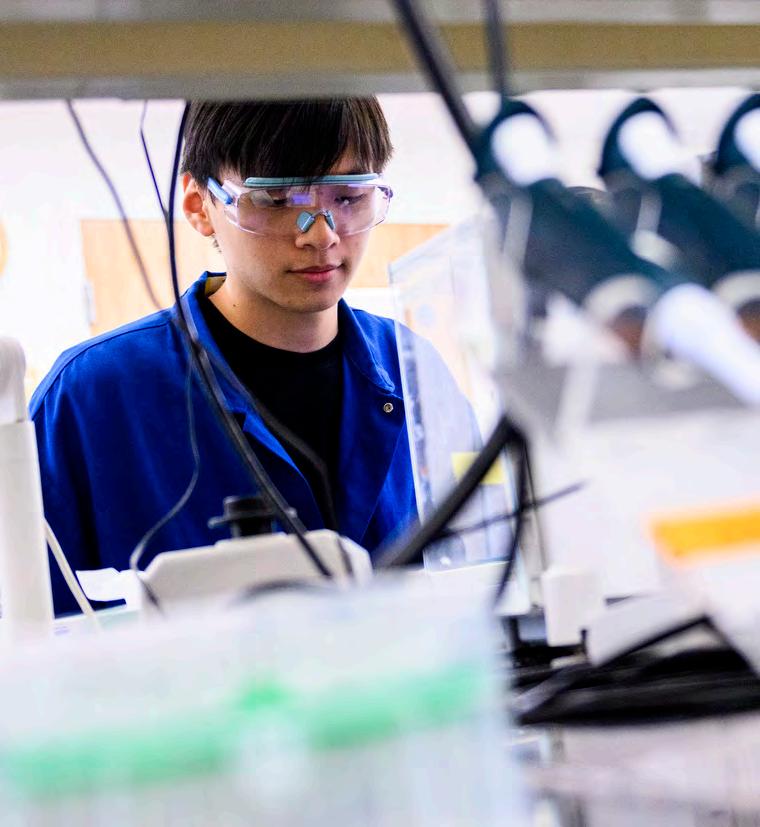
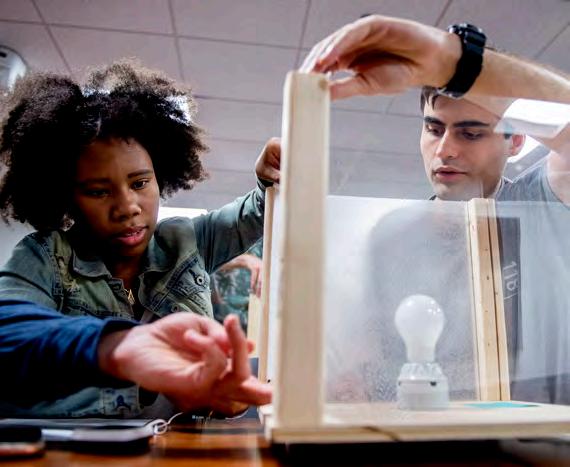

Engineering is an exciting and evolving field. Engineers pioneer discoveries that shape society and can have a transformative impact on the world. As a student in the College of Engineering at Northeastern University, you will have the opportunity to personalize your path with five engineering departments, interdisciplinary majors, over 70 minors across seven colleges, and the PlusOne accelerated master’s program.
You will also have the opportunity for experiential learning—from laboratory exercises, senior capstone design projects, professional association activities, and research with highly accomplished faculty, to cooperative education where you gain industry experience as part of the curriculum.
In and outside of the classroom you will be engaged. Our students participate in the college’s over 60 student organizations, national and global competitions, a vibrant entrepreneurship ecosystem, and a range of global experience options.
On completion of the core curriculum, students choose one of four concentrations to focus on:
■ Biomechanics and Mechanobiology
■ Biomedical Devices and Bioimaging
■ Molecular, Cell, and Tissue Engineering
■ Systems, Synthetic, and Computational Bioengineering
Each concentration provides the opportunity for students to develop a deep level of expertise in an important academic and research area of bioengineering.
REPRESENTATIVE CO-OP EMPLOYERS
Abiomed
Becton Dickenson
Boston Scientific
Brigham and Women’s
Dragonfly
Hologic
Johnson & Johnson
Lyndra
EMPLOYER TYPES
Biotechnology
Alternative Biofuels
Medical Devices
Pharmaceuticals
TYPICAL CO-OP JOBS
Moderna
Pfizer
Selux Diagnostics
Solid Biosciences
Sunovion Pharmaceuticals
Takeda
Thermo Fisher
Tissue Engineering
Imaging
Healthcare Consulting
Computational Biology
Medical device design, drug development, process development, bioinformatics, genetic engineering, synthetic biology, biomedical imaging, biomedical materials, biomedical device and product manufacturing
View an in-depth video of the Bioengineering Department
The Department of Bioengineering offers students a broad education built on fundamentals in science, mathematics, and engineering, with a focus on the biological applications of engineering. The program provides a rigorous engineering training along with a comprehensive understanding of the biological constraints intrinsic to designing artificial systems to interface with, augment, replace, repair, or monitor living systems. These constraints depend on the properties of the biological system involved and the functionality that is being created.
The living system may be the human body, an ecosystem, or, more broadly, a bioreactor, tissue culture system, or any system with living components. The presence of naturally occurring biological tissue places special constraints on the design and implementation of artificial constructs and their interface to living systems. Bioengineers are engineers with comprehensive understanding of the engineering requirements intrinsic to working within a biological context.
Bioengineering is a relatively new field driven by the recognition that engineering of biological systems or systems that interface with living systems requires a multidisciplinary approach that takes into account the mechanical, electrical, chemical, and materials properties of the biological system. With that in mind, the bioengineering program has been designed to provide a rigorous engineering education that endows a broad understanding of the quantitative analysis of biological systems and a deep expertise in one of four areas of bioengineering.
Students joining the Department of Bioengineering will have unique opportunities in the classroom, research labs, and experiential learning. The projects that they may be able to contribute to include bio-bandages that monitor bacterial growth or that help damaged ligaments heal faster; sheets of cells folded like origami to form a working kidney; and new materials that—like a leaf in the sun—automatically sense and adapt to changes in the environment. This is truly an exciting time!
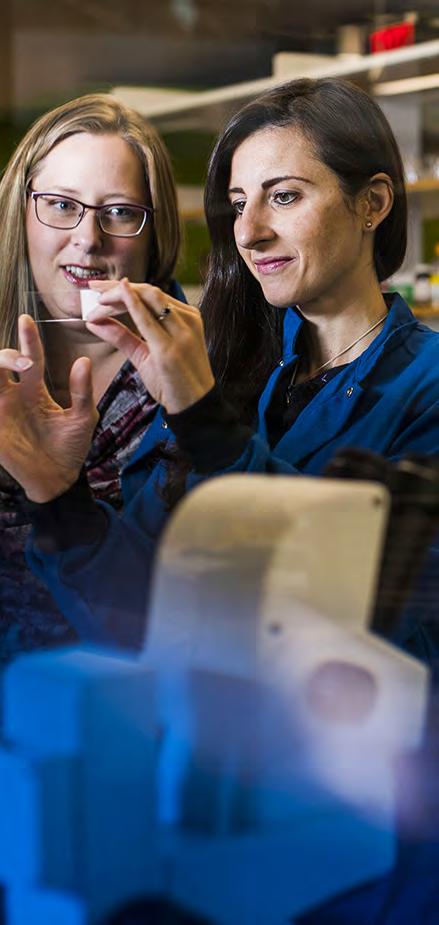


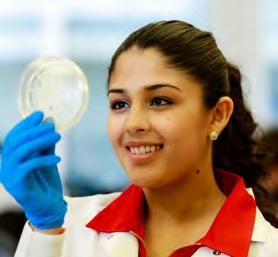




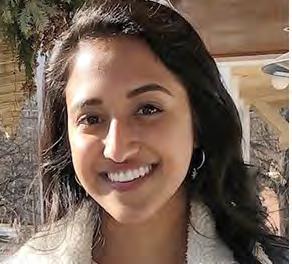

The practice of chemical engineering integrates a wide range of disciplines—from physics to mathematics, biology, and chemistry—to create solutions to the world’s challenges. Chemical engineers constantly strive for ways to take discoveries from the lab and scale them up to improve life in the real world. Novel polymers for medical devices, cosmetics research and development, battery technology for energy storage, systems for drug discovery and delivery, food production for global nutrition— these are just some of the ways that chemical engineering contributes to human health and a sustainable environment.
The Department of Chemical Engineering prepares students to join these efforts with a mix of rigorous academic study and practical experience in cutting-edge laboratory work. Undergraduate students are encouraged to participate in compelling research projects in biomolecular systems, complex and computational systems, engineering education and pedagogy, materials and nanomaterials, and energy and sustainability. The co-op positions available in chemical engineering span the areas of consumer products and cosmetics, plastics, biotechnology, nanotechnology, alternative energy, and petrochemicals, both domestically and internationally. Opportunities abound for students to enhance and apply their learning in student clubs and organizations—like the American Institute of Chemical Engineers—some of which participate in national competitions.
Our accomplished and diverse faculty are widely recognized for their research, educational impact, and leadership in the field by the National Science Foundation, National Institutes of Health, American Society for Engineering Education, and a variety of other government and professional organizations. They are committed to building and maintaining a strong, welcoming community for all in the department—particularly the students they advise, mentor, and inspire.
top: Professor Debra Auguste is collaborating with Boston Children’s Hospital to develop new treatments to target and treat patients with triple-negative breast cancer. center left: Through three co-ops, Jordan Harris, chemical engineering, found his interest in medical research and immunology and is pursuing an MD/PhD at University of Pennsylvania. center right: Rachel Joseph, chemical engineering, was nominated for the Udall and Truman Scholarships. She plans to pursue graduate studies in law and public policy. bottom left: Sydney Morris, chemical engineering, received a National Science Foundation Graduate Research Fellowship and is pursuing a PhD in materials science and engineering at Brown University. bottom right: Cameron Young, chemical engineering and biochemistry, co-authored 10 medical-related papers, conducted research at Boston Children’s Hospital and Mass General Brigham, and received both the Barry Goldwater and Churchill Scholarships.
On completion of the core curriculum, students choose one of four concentrations to focus on:
■ Biomolecular and Biomedical Systems
■ Complex and Computational Systems
■ Energy and Sustainability
■ Materials and Nanotechnology
RESEARCH AREAS
■ Biomolecular and Biomedical Systems
■ Complex and Computational Systems
■ Energy and Sustainability
■ Engineering Education and Pedagogy
■ Materials and Nanotechnology
REPRESENTATIVE CO-OP EMPLOYERS
24M Nano C
Abbvie
Amgen
A123 Systems
ASMPT NEXX
CONTINUUS Pharmaceuticals
Dragonfly
Ocular Therapeutix
Pfizer
Poly6
Rogers Corporation
Sanofi Genzyme
Nuvera Fuel Cells
Entegris Via Separations
HH Technology
EMPLOYER TYPES
Biotechnology
Alternative Fuels/Energy Storage
Chemical Manufacturing
Coatings/Materials
Consulting
Consumer Products
Cosmetics
TYPICAL CO-OP JOBS
Waters Corporation
Food Science
Pharmaceuticals
Process Design
Product Design
Nanotechnology
Semiconductors
Sustainable Agriculture
Process engineering, biomaterials engineering, lab technician, equipment design, product development, process controls, data analysis, mixing and formulations, analytical chemistry, advanced materials, research and development
View an in-depth video of the Chemical Engineering Department
cee.northeastern.edu
RESEARCH AREAS
Civil Infrastructure
Coastal Engineering
Earthquake Engineering
Environmental Sustainability
Human Mobility
REPRESENTATIVE CO-OP EMPLOYERS
AECOM
Barletta
BlueWave Solar
City of Boston
CDM Smith Parsons
Construction
D.C. Beane and Associates Roux Associates
Disney Worldwide Services
DN Tanks
Environmental Partners
Faithful+Gould
Gumpertz and Heger
HDR Engineering Suffolk Construction
HNTB Corporation Toole Design Group
Howard Stein Hudson
Jacobs Engineering
LeMessurier WSP
EMPLOYER TYPES
Environmental Consulting
Geotech and Design
Government
Infrastructure Preservation
TYPICAL CO-OP JOBS
Construction
Hangen Brustlin
Smart Construction Design
Sustainable Energy
Transportation Planning and Systems
Urban Development
Sustainable building and urban design, energy sector efficiency, environmental protection and design, clean water development, forensic engineering, infrastructure planning, design, and construction
The coming decades will represent a crucial time in human history as climate change, urbanization, and technological progress profoundly reshape the ways in which we live and work. From the opportunities of renewable energy and artificial intelligence to the threats of rising sea levels and overcrowded urban spaces, civil and environmental engineers work at the forefront of an ever-evolving and complex world.
Northeastern’s civil and environmental engineering students prepare for lifelong engagement with the world through a flexible curriculum and exciting co-ops across the U.S. and around the world. Our program offers leadership opportunities through award-winning student groups like our chapter of the American Society of Civil Engineers, which leads community service projects throughout the region, and Engineers Without Borders (EWB), which builds schools, water systems, and other projects for communities in Africa and Central and South America.
One favorite way for students to enhance their classroom experience is through Dialogue of Civilizations, six-week immersive faculty-led summer programs which pair cultural experience with technical learning. Recent Dialogues include trips to the Netherlands to learn about sustainable transportation, to India to learn about climate change, and to Italy to learn about resource recovery or structural engineering of historic buildings.
For students interested in research, our outstanding faculty have a variety of projects to engage with in the lab or in the field, such as developing passive sensing techniques for aquatic contaminants, designing 3D-printed nutrient sensor networks for marine environments, designing and testing structures and their components for resilience and sustainability, and pioneering offshore wind power and nearshore wave mitigation systems.
Students are mentored by faculty to reach their highest potential. We are very proud of the successes of our students, including our alumna, Logan Jackson, who received a Rhodes Scholarship upon completing her civil engineering degree and subsequently received two master’s degrees from Oxford University.

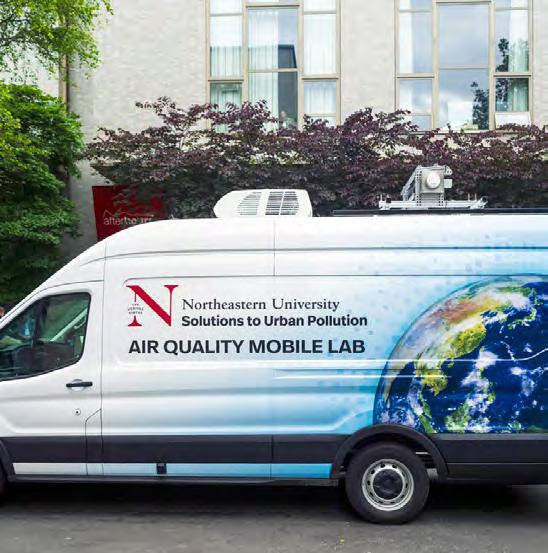
top: Professor and Distinguished Fellow Yang Zhang is leading the Intelligent Solutions to Urban Pollution for Equity and Resilience interdisciplinary research team, which is pairing low-cost, adaptable sensing technologies with novel pollution prediction models in Greater Boston to accurately identify hyperlocal pollution hot spots in real time. center left: As a Rhodes Scholar, Logan Jackson, civil engineering, completed two master’s degrees from Oxford University. center right: Rotem Leshed, environmental engineering, has completed three co-ops focused on issues of sustainability and climate change, such as developing novel water systems for communities on Cape Cod whose well water is threatened by rising sea levels. bottom left: Ben Lanava, environmental engineering, received a Udall Undergraduate Scholarship Honorable Mention. He is researching plant-based solutions as alternatives for PFAS, highly toxic fluorinated ‘forever’ chemicals, and for carbon sequestration efforts to address climate change. He was vice president of the New England Water & Environment Association student group, and design lead for the Engineers Without Borders student group. He is currently pursuing a PhD in Population Health Sciences at the Harvard T.H. Chan School of Public Health. bottom right: Franklin Ollivierre, civil engineering, works in Professor Mike Kane’s lab on a research project studying the use of renewable energy and microgrids to power remote islands. He is an executive board member of the Black Engineering Student Society.

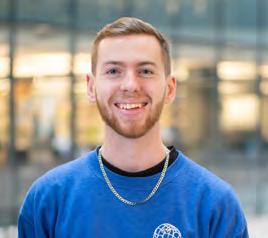


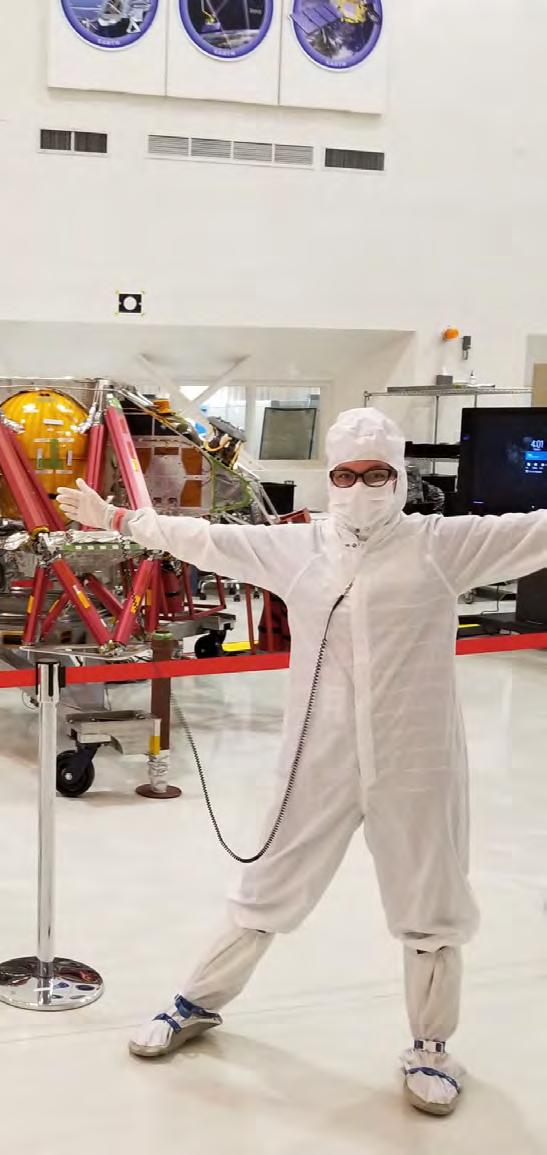
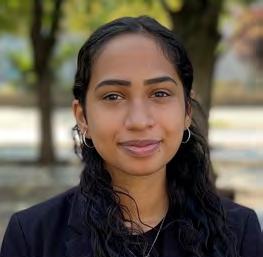

Electrical and computer engineering is at the heart of nearly all modern engineered systems. Engineers in this field not only design and build electronic and electrical devices, they also innovate in the areas of computers, computational equipment, and communication equipment. Applications that are vital to society—from transportation to energy, communications, healthcare, and more—fundamentally depend on electrical and computer engineering.
The Department of Electrical and Computer Engineering spans a wide range of sub-disciplines, encompassing robotics (including control systems and embedded systems), the Internet of Things (including networking, communications, and computer systems, architectures, and security), and big data (including machine learning, signal processing, and enabling technologies for data centers). The department has notable strength in devices and microelectronics, RF/microwave materials, and power electronics and systems.
Students in electrical and computer engineering can customize their curriculum to focus on their specific areas of interest, advised by faculty mentors who are recognized leaders in their fields. Lectures are tightly integrated with lab work, supporting classroom learning with practical application. There are plentiful research opportunities for undergraduates as well—experience with stateof-the-art equipment in our labs, and on co-ops, set students up for professional success in industry, academia, and the public sector. Student clubs and organizations, such as IEEE Northeastern, also provide opportunities for leadership, fun, and communitybuilding, as well as creative and compelling competitions, where Northeastern teams, like Northeastern Electric Racing and NU Robotics, have distinguished themselves nationally and internationally.
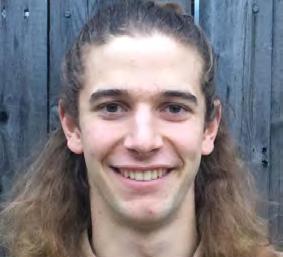

top: Elizabeth Wig, electrical engineering, conducted research on co-op at NASA on the Mars Rover to discover a new method for detecting water underground on Mars. She is currently pursuing a PhD at Stanford University. middle left: Aditi Purandare, electrical and computer engineering, conducts research in data science, high-performance computing projects, and artificial intelligence. She was awarded a Fulbright-Canada Globalink Mitacs Award, allowing her to conduct research at the University of Toronto. middle right: Jacob Kaplan, computer engineering and computer science, received a U.S. Fulbright for a teaching assistantship in Taiwan. He previously studied in Brazil and did a co-op in Tanzania. bottom left: Spencer Jacobs-Skolik, electrical engineering, received the prestigious Barry Goldwater Scholarship, published research in a peer-reviewed journal, and did research co-ops at Harvard Medical School. bottom right: Maya De Los Santos, electrical and computer engineering, has served as president of the Society of Hispanic Professional Engineers and was nominated for the prestigious Rhodes, Marshall, Knight-Hennessy, and Churchill Scholarships.
ece.northeastern.edu
RESEARCH AREAS
Artificial Intelligence and Machine Learning
Computer Architecture and Software
Communications and Networking
Control Systems
Electromagnetic and Optical Systems
Electronic, Plasmonic, and Photonic Systems
Hardware and Software Security
Materials and Semiconductors
Nano- and Micro-electromechanical Systems
Power Systems and Power Electronics
Robotics
REPRESENTATIVE CO-OP EMPLOYERS
Advanced Micro Devices
Amazon Robotics
Apple
Bose Corporation
BAE Systems
CarGurus
Cisco Systems
Draper Laboratories
Dell Technologies
General Dynamics
Google/Nvidia
EMPLOYER TYPES
Aerospace
MIT Lincoln Laboratories
MIT Media Labs
NBC Universal
NASA Stennis Space Center
Motorola Solutions Raytheon
Automotive/Transportation
Artificial Intelligence
Biotechnology
Consumer Electronics
Defense and Security
Electronics Research and Development
TYPICAL CO-OP JOBS
Red Sox Baseball
Samsung Information Systems
Schneider Electric
Shark Ninja
SpaceX
Square Robotics
Starry
Tesla Wayfair
ZOOX
Internet of Things
Medical Instruments/Technology
Power Generation/Distribution
Renewable Energy
Robotics
Semiconductor Design
Telecommunication
Software quality assurance, test and debug; hardware design; assistant substation engineer; digital signal processing; semiconductor design; embedded programming; project engineering; prototype assembly and test; power conversion design; research & development engineering support; software development; medical product design/test; robot design, test and development; circuit board design and testing; systems engineering; radio frequency engineering; modem test engineer
View an in-depth video of the Electrical & Computer Engineering Department
mie.northeastern.edu
Biomechanics, Biofluids, and Mechanobiology
Complex Fluids, Multiphase, and Multiscale Matter
Data Analytics, AI, and Operations
Research
Energy Systems, Sustainability, and Environmental Protection
Engineering Education
Human-Technology Integration
Intelligent and Additive
Manufacturing
Materials for the Future
Mechanics
Networks and Complex Systems
Resilient and Sustainable Service Systems
Robotics and Control Systems
REPRESENTATIVE CO-OP EMPLOYERS
Abiomed
Amazon Robotics
Apple
Bosch Thermotechnologies
Bose Corporation
Boston Children’s Hospital
Boston Scientific Corporation
Desktop Metal
Disney
General Electric
Fikst Product Development
Fresenius Medical Care
Hasbro
EMPLOYER TYPES
Automation
Aerospace
Automotive
Biomedical
Construction/HVAC
Consumer Products
Consulting
TYPICAL CO-OP JOBS
Insulet Corporation
Johnson & Johnson
Lockheed Martin
NASA JPL
Philips North America
PriceWaterhouseCoopers
Raytheon
Recorded Future
SharkNinja
SpaceX
Tesla Whoop Wayfair
Defense
Energy / Renewable Energy
Financial Services
Government
Healthcare
Industrial Products
Robotics
Design, research and development, solid modeling/drafting, quality control, prototype/assembly, manufacturing, business intelligence, testing, data analysis/statistics, supply chain/logistics, sales engineering, project management, renewable energy, robotics, business consulting and systems
engineering
View an in-depth video of the Mechanical & Industrial Engineering Department
Mechanical and industrial engineering are among the broadest engineering disciplines, encompassing aspects of electrical and computer engineering, bioengineering, and chemical engineering. Mechanical engineering applications in our society are ubiquitous, from building and enhancing infrastructure to designing and fabricating machinery and structures to innovating new technologies (and integrating them effectively with existing ones). Industrial engineering is primarily focused on processes, supporting the development and operation of the supply chains, logistics systems, and data analytics that make contemporary life possible. Industrial engineering also involves designing products and systems for the human user for functionality, usability, and sustainability. Additionally, industrial engineering is also closely aligned with business, math, data science, and a host of customizable minors.
To meet global challenges in these areas, the Department of Mechanical and Industrial Engineering offers academic instruction and research with real-world impact. Transforming and modernizing manufacturing to remain competitive globally; applying artificial intelligence to healthcare problems to maximize patients’ quality of life; preventing opioid addiction; combating human trafficking; using recycled materials to help homes stay cooler in warm weather; and developing robots able to learn and adaptively execute autonomous behaviors are just a few examples. There are many opportunities for students to assist in these efforts, strengthening classroom learning by applying it to practical work both in Northeastern’s labs and on co-ops locally and around the world.
Mechanical and industrial engineering students are also active in a wide array of clubs and organizations. These can be dedicated to building robots, launching rockets, assembling offroad vehicles to race in national competitions, serving community partners, or focused on professional development and networking with industry. In all cases, they enhance learning, build community, and connect students to opportunities and each other.


top: Based on their capstone project, Jaison Patel and Joshua Baum, mechanical engineering, co-founded startup Tubender to make tube bending for metal conduits an affordable and efficient process, while an industrial engineering capstone team worked with the United States Tennis Association to help automate and standardize the electronic officiating process for the US Open Tennis Championships. center left: Teresa Schmeiszer, mechanical engineering, advanced her technical skills while working on large-scale milling machines during her co-op at rail industry manufacturer Hegenscheidt in Germany. center right: Thando Ray, mechanical engineering major and human services minor, had co-ops in Seattle, and overseas in Rwanda, Sierra Leone, and Indonesia working on non-profit projects for social impact. bottom left: Tejas Karwa, industrial engineering, is pursing a master’s in data analytics engineering with the PlusOne program, and an engineering business certificate with the Galante Engineering Business program. He had data analytics co-ops at John Hancock, Boston Consulting Group, and Amazon. bottom right: Industrial engineering graduate Madison Rodriguez is in the PlusOne program pursuing an MS in data analytics engineering, and a Galante engineering business certificate. She had two co-ops, went on a Dialogue of Civilizations to Turkey, and was captain of the women’s club soccer team.





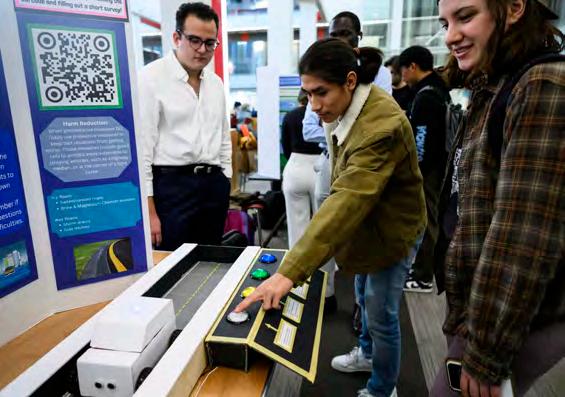
With a distinct focus on first-year engineering education, the First Year Engineering Program prepares undergraduate engineers with the fundamental building blocks needed for all College of Engineering majors. Emphasizing hands-on, integrated design, students gain an immersive experience in a state-of-the-art makerspace. Through the lens of the engineering design process, the program weaves engineering ethics and research into designs created with CAD and software development programs used by leading industry engineering firms. Student designs are brought to life through our makerspace’s extensive fabrication tools with support from our upper-class engineering student mentors. Dedicated first-year teaching faculty, with expertise in engineering pedagogical research and a diverse array of engineering backgrounds, focus on creating and evolving teaching practices to ensure that the program scaffolds students in an authentic and fully integrated manner to excel in the rest of their academic scholarship.
Engineering students do not need to commit to an engineering major until the end of their first year. They typically take a common firstyear curriculum as shown below and complete 34 credits (17 per semester).
MATH
Calculus 1 (4 credits)
Calculus 2 (4 credits)
ENGINEERING
First-Year Seminar (1 credit)
Cornerstone of Engineering 1 (4 credits)
Cornerstone of Engineering 2 (4 credits)
SCIENCE
Chemistry (4 credits)
Physics 1 + Lab (5 credits)
HUMANITIES
College Writing (4 credits)
Elective (4 credits)
Credit for courses may be awarded for AP exam scores of 4 or greater and transfer courses appearing on an official college transcript with a grade of C or better. Also course credit may be awarded for scores of at least 5 on an IB higher-level exam. An academic advisor will work with students during summer orientation to determine the specific courses in the engineering curriculum for which credit can be awarded, to discuss the value of that credit in a specific program of study, and to make any necessary course schedule adjustments for the first semester.
Academic advisors are available for support, advice, and referral services for all academic student issues and concerns. Engineering students are urged to talk to an advisor about any concern or issue before academic success is impeded. On the Boston campus, the College of Engineering Academic Advising Office is located in 147 Snell Engineering Center.
This seminar focuses on essential tools for academic success in the College of Engineering at Northeastern University. Through workshops, events, and interactive modules, students will be introduced to various academic resources and opportunities.
The Cornerstone of Engineering courses are taught by professors who specialize in teaching first-year engineering courses to help new students meet the challenges of the transition to the College of Engineering.
Honors sections of courses taken by first-year engineering students are available for those accepted into the Honors Program. For more information about the Honors Program, see: undergraduate.northeastern.edu/honors
Upper-class students are available to provide free drop-in tutoring for first-year engineering students in calculus, physics, chemistry, and engineering courses. In Boston, tutoring services are also provided by the Physics department, Math department, Chemistry Central, the Writing Workshop, student organizations, and honor societies.
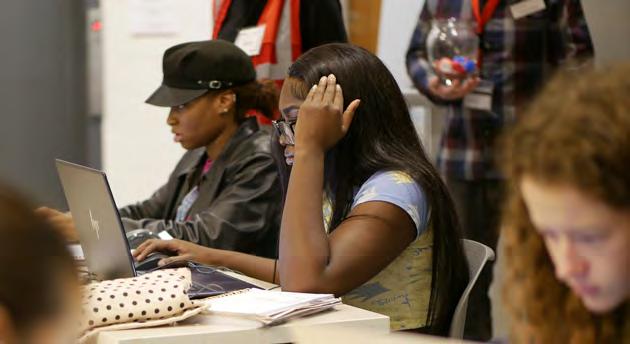
First-year engineering students in Boston may be able to elect to reside with other first-year engineering students in the Engineering/Connections Living Learning Communities (dedicated floors in a first-year residence hall). Incoming students indicate this preference when registering for housing.
The Neurodiversity Initiative at the College of Engineering supports fostering a community of belonging. Goals and programming include: promoting awareness and acceptance of the different experiences of neurodivergent college students via a strength-based approach; guiding our neurodivergent engineering students through their individualized experiences within higher educational and social settings; and using Northeastern’s experiential learning co-op program to create positive employment outcomes upon graduation and beyond, with a focus in employee retention and ascension. For information visit: neurodiversityinitiative.sites.northeastern.edu or email neurodiversityinitiative@northeastern.edu.
Special programs (e.g., mentoring and tutoring) designed to support women students in engineering are coordinated by the College of Engineering.
Special programs (e.g., mentoring and tutoring) designed to create a community of belonging for all students in engineering are coordinated by the Director of NUPRIME, Richard Harris (ri.harris@northeastern.edu).
top: The First Year Learning and Innovation Center offers resources and a makerspace for students to work on projects as well as support from dedicated first-year faculty and “red vest” upper-class students. bottom: Taskin Padir, professor of electrical and computer engineering, works with Nicolas Binford, computer engineering, developing a hexi-copter drone project.

Introduction to the various majors are accomplished within the first-year engineering courses, as well as in conversations with individual engineering faculty. The College of Engineering offers a variety of majors, combined majors, and minors, giving students the flexibility to personalize their path.
Bioengineering
Chemical Engineering
Civil Engineering
Computer Engineering
Electrical Engineering
Environmental Engineering
Industrial Engineering
Mechanical Engineering
Bioengineering & Biochemistry
Chemical Engineering & Biochemistry
Chemical Engineering & Bioengineering
Chemical Engineering & Computer Science
Chemical Engineering & Data Science
Chemical Engineering & Environmental Engineering
Chemical Engineering & Physics
Civil Engineering & Architectural Studies
Civil Engineering & Computer Science
Computer Engineering & Computer Science
Computer Engineering & Physics
Electrical & Computer Engineering
Electrical Engineering & Music Technology
Electrical Engineering & Physics
Environmental Engineering & Chemical Engineering
Environmental Engineering & Data Science
Environmental Engineering & Health Science
Environmental Engineering & Landscape Architecture
Industrial Engineering & Business Administration
Industrial Engineering & Computer Science
Mechanical Engineering & Bioengineering
Mechanical Engineering & Computer Science
Mechanical Engineering & Design
Mechanical Engineering & History
Mechanical Engineering & Physics
Additional information about each major can be found at: coe.northeastern.edu
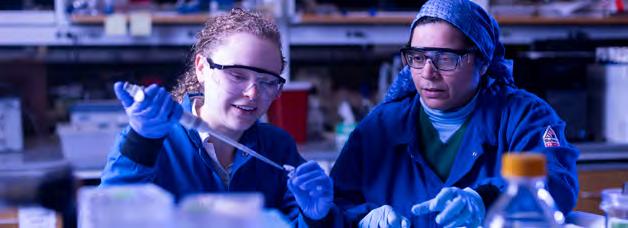
In many cases, a student can earn a minor without course overloading. There are over 70 minors across seven colleges. Some of the popular choices for engineering students include:
Aerospace Engineering
Architectural Engineering
Biochemical Engineering
Bioengineering
Biology
Biomedical Engineering
Business Administration
Chemistry
Civil Engineering
Design and Innovation in Engineering
Entrepreneurship
Environmental Engineering
Computer Engineering
Computer Science
Data Analytics
Electrical Engineering
Global Perspectives in Engineering
Industrial Engineering
Mechanical Engineering
Materials Science & Engineering
Mathematics
Music
Physics
Psychology
Robotics
Sustainable Energy Systems
Select from over 475 program pathways to earn a master’s degree in just one additional year of study. learn more:
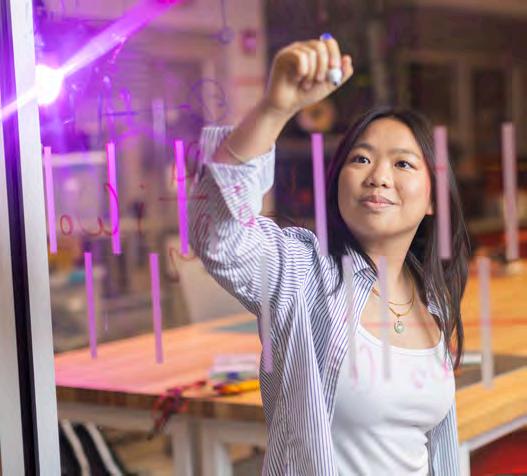
Northeastern is an R1 top-tier research institution as rated by the Carnegie Classification of Institutions of Higher Education. The College of Engineering is engaged in a wide array of exciting and highly innovative research areas to address global challenges and advance society. These include 20 stateof-the-art multidisciplinary research centers and institutes with funding by eight federal agencies. When combined with numerous other research efforts at Northeastern, engineering external research awards exceed $100 million annually. See: coe.northeastern.edu/coe-research. This creates a vibrant research community of faculty, graduate and undergraduate students, and collaborative government, industry, medical institution, and academic partners.
First-year students may become involved in research programs as UPLIFT Scholars. First-year students across the Northeastern network are invited to attend faculty research presentations during the fall semester. Attendees are then invited to apply for a research placement for the spring semester. Additionally, first-year students are encouraged to apply for summer research opportunities (REUs) that enable them to engage in a paid research experience for 10 weeks during the summer. As an upper-class student, there are additional opportunities to perform independent research working both in a university setting and/or with industry partners during their six month co-op period.
These undergraduate research opportunities provide a unique window into graduate research for students wishing to continue their education in graduate school at Northeastern or other excellent graduate programs from MIT to Stanford.
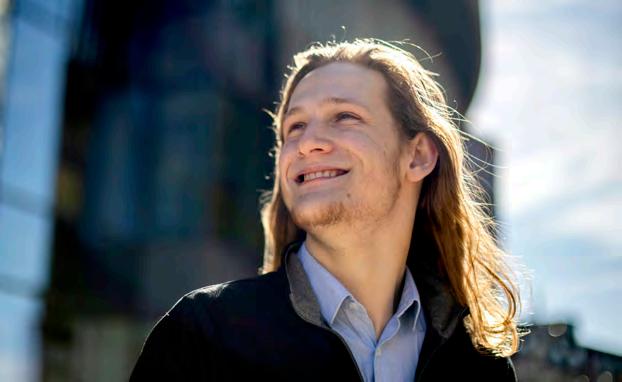


top: Giona Kleinberg, a recipient of the Barry Goldwater Scholarship, researched neurological diseases while pursuing a combined major in bioengineering and biochemistry and a minor in data science, and has plans for both a medical degree and a PhD. upper middle: Purnima Ratilal-Makris (center), professor of electrical and computer engineering, and her undergraduate and PhD students participated in an experiment on real-time oceanic acoustic monitoring at sea, aboard research vessel Endeavor. lower middle: As an undergraduate bioengineering student, Samantha Johnson conceived of a robotic device that could sign for DeafBlind people. By the time she began her masters, she had built her first prototype and ultimately founded Tatum Robotics. bottom: Sofia Catalina, chemical engineering, researches new materials and architectures for energy storage advised by DiPietro Assistant Professor Joshua Gallaway. She received a GEM Fellowship and National Science Foundation Graduate Research Fellowship and is pursuing a PhD at Stanford University.

Co-op has been the centerpiece of the College of Engineering’s education since 1909, and Northeastern is ranked No. 1 in co-op/internships by U.S. News and World Report (2024).
After their first year, students typically alternate periods of classes with relevant, paid employment. Students graduate with six to 18 months of relevant work experience and a strong set of technical and professional skills, as well as a clear understanding of the career they have chosen.
There are more than 1,000 undergraduate co-op employers. Students have been hired on co-op in 43 states and 23 countries over the past three years.
Students prepare for the co-op search with a one-credit professional development course. During the co-op search process, students are supported in applying and interviewing for co-ops by one of our more than 30 engineering co-op advisors.
Students do not typically take classes or pay tuition while on co-op. The median hourly co-op salary ranges from $22 (first co-op) to $30 (last co-op). Nearly 55% of our students receive a job offer from a co-op employer. 96% of our graduates are employed full time or enrolled in graduate school within nine months of graduation.
There are several co-op schedule choices for completing a Bachelor of Science (BS) degree as well as an option with the PlusOne program.
The options include:
• 4-year BS program with one or two 6-month co-ops (two co-ops shown on the right)
• PlusOne accelerated master’s program (4-year BS plus additional two semesters of classes as a graduate student); the third co-op can be taken during the PlusOne program.
More info at: coe.northeastern.edu/undergradcoop
The co-op program helps students:
• Connect and apply classroom theory
• Grow personally and professionally
• Find careers that suit their interests and abilities
• Build an impressive resume
• Meet potential employers
• Develop valuable job search and interviewing skills
• Gain self-confidence
• Prepare to be lifelong learners



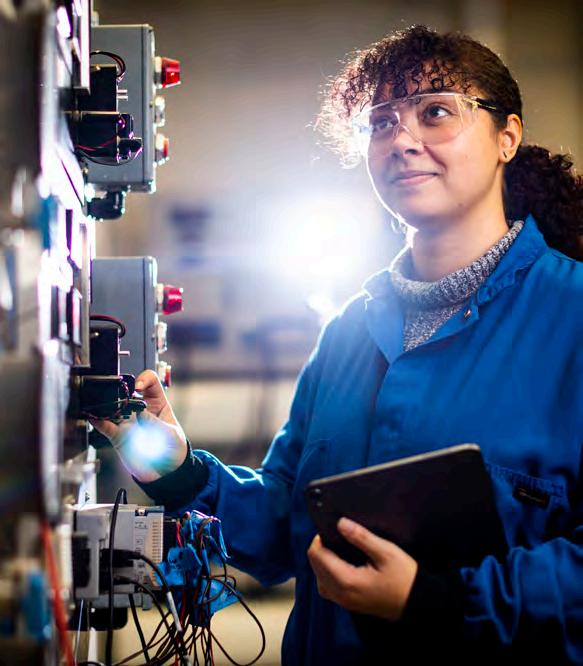


top left: During a venture co-op at the Sherman Center for Engineering Entrepreneurship Education, Mukki Gill, mechanical engineering and history, developed a portable medical device that predicts epileptic seizures for which she won Northeastern’s Women Who Empower Award. top right: On an electrical engineering co-op at NASA’s Kennedy Space Center, Jonah Saunders routinely delivered payloads to a SpaceX Dragon spacecraft before it would take off for delivery to the International Space Station. middle left: Ella Strzegowski, bioengineering, spent one of her co-ops working at Moderna on quality control measures to examine the molecules in the messenger RNA (mRNA) vaccine. middle right: Sam Scroggie’s mechanical engineering co-op at Apple in California led to a full-time position after graduation.
bottom left: On co-op, Andrea Griffin, who is a chemical engineering major with a minor in marketing, was a material verification engineer at Nuvera Fuel Cells and a technical marketing researcher at Rogers Corporation. After graduation, she plans to get an MBA. bottom right: Isabelle Brandicourt, electrical engineering, spent her co-op in Antarctica conducting research of Emperor penguins and tagging them with RFID chips for tracking.
Through the Michael J. and Ann Sherman Center for Engineering Entrepreneurship Education (Sherman Center), Northeastern University Center for Entrepreneurship Education, and a mosaic of entrepreneurial resources across the university, students have the opportunity to pursue entrepreneurship opportunities of their choice. The Sherman Center provides education on tools, concepts, and resources to foster creativity and the ability to develop commercially viable ideas. It offers a host of programs, including semester-long courses in product innovation and design, an entrepreneurial engineering minor, an entrepreneurial mentor program, a student-run product development studio, events and professional networking, and a co-op program where students are funded while working full time on their startup ventures.


Students have an opportunity to develop leadership skills and engineering experience through participation in a wide variety of student clubs, organizations, and professional societies. Some highlights include:
AerospaceNU
American Institute of Chemical Engineers
American Society of Civil Engineers
American Society of Mechanical Engineers
BioMedical Engineering Society
Black Engineering Student Society
ChemE Car
COExist
Enabling Engineering
Engineers Without Borders
FIRST Robotics - NUTRONS
Generate Product Development Studio
Innovators for Global Health
Institute of Electrical & Electronics Engineers
Institute of Industrial & Systems Engineers
International Society for Pharmaceutical Engineers
NU Baja SAE All-Terrain Vehicle
Northeastern Electric Racing
NU Institute of Transportation Engineers
NU New England Water Environment Association
NU Robotics
NUSound
oSTEM
Roxbury Robotics
Students for the Exploration and Development of Space
Society of Asian Scientists & Engineers
Society of Hispanic Professional Engineers
Society of Women Engineers
Solar Decathlon
STEMout
Wireless Club
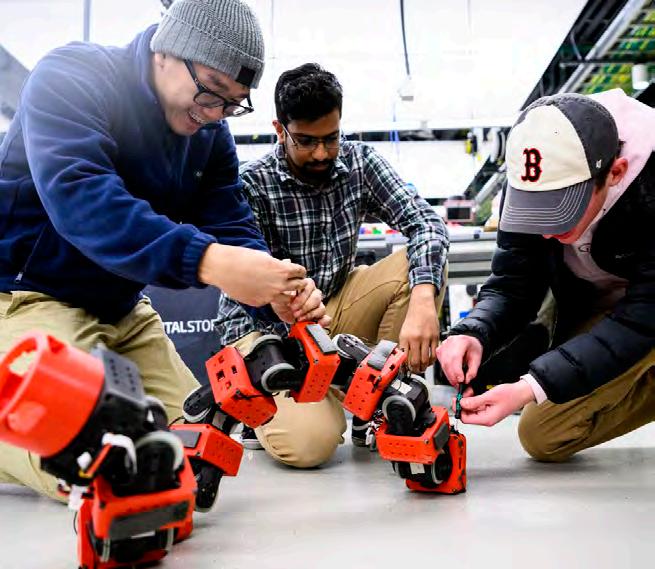
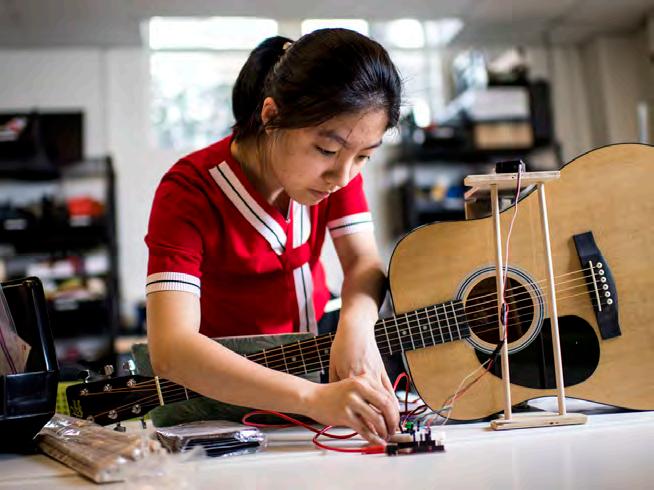
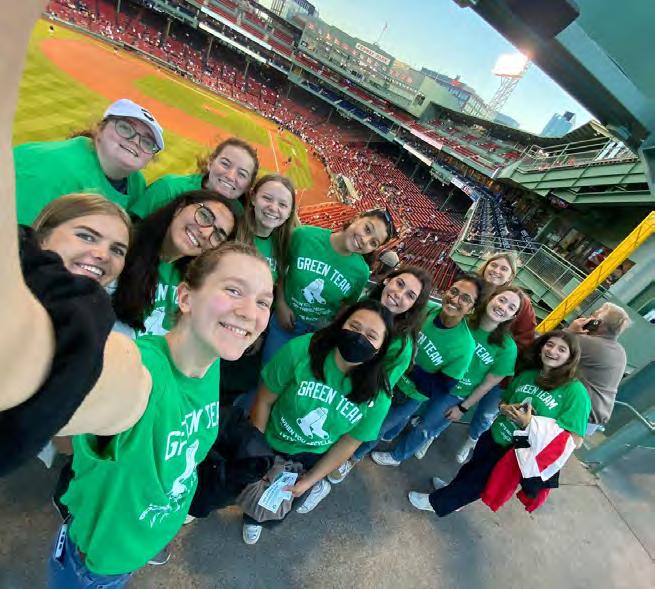



top left: The Students for the Exploration and Development of Space team won first place at NASA’s BIG Idea Challenge by developing the “COBRA: Crater Observing Bio-inspired Rolling Articulator,” whose snake-like design allows the robot to traverse the extreme terrains on the moon’s surface. top right: Students in the AerospaceNU club work in teams designing, building, and launching a rocket from scratch. middle left: Yajing Wang, a first-year computer engineering student, works on the Adaptive Guitar project in the Enabling Engineering Lab. middle right: The Northeastern Electric Racing team placed second in the all-electric vehicle category at the 2022 Formula Hybrid+Electric Competition. bottom left: The Society for Women Engineers at Northeastern volunteer as the Green Team, collecting recyclables from fans at a Boston Red Sox game. bottom right: The Black Engineering Student Society at Northeastern attending the National Society of Black Engineers convention for the 50th anniversary.
With a focus on developing the next generation of engineers capable of addressing global challenges, the College of Engineering supports the opportunity for students to go global by participating in one of many programs at Northeastern. These range from studying abroad at a university for a semester to summer Dialogue of Civilizations, which are six-week facultyled programs that pair class study with in-country experience. Global co-ops provide additional opportunities for students to work outside of the United States. Semester In and Summer In opportunities within the College of Engineering provide students the opportunity to learn on one of our network campuses and explore local industries. Additionally, engineering student organizations, such as Engineers Without Borders (EWB) and Innovators for Global Health, enable students to apply their engineering skills in other countries. EWB builds schools, water systems, and other projects for communities in countries such as Uganda, Honduras, and Panama. Students in Innovators for Global Health use their engineering, science, and medical knowledge to improve healthcare in developing countries such as Ethiopia and Ghana. Many students accepted into our N.U.in or London Scholars programs have the unique opportunity to begin their Northeastern experience in another country before coming to the Boston campus.
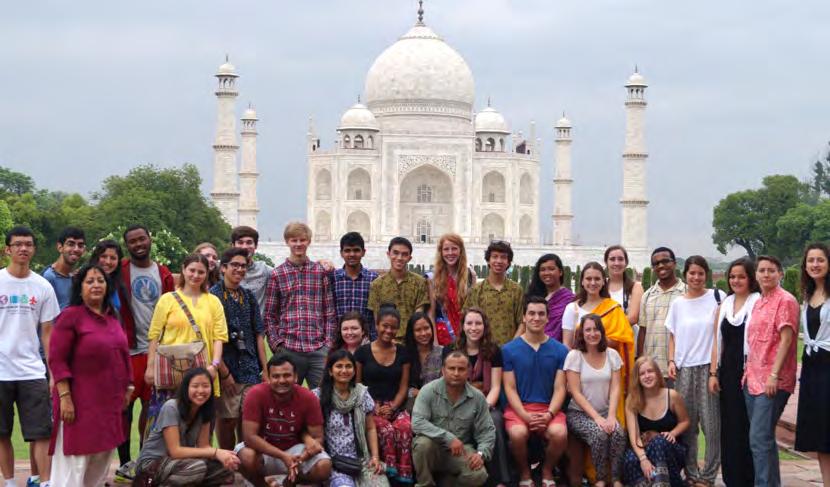


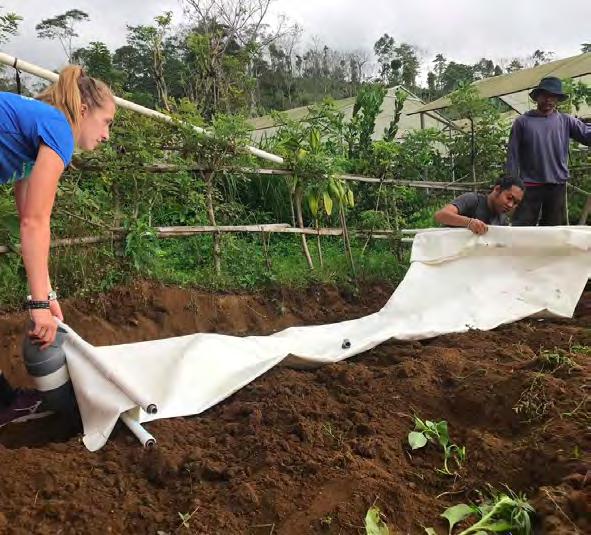
For a variety of helpful information such as the admissions process and requirements, campus tours and events, financial aid information, and to Apply with the Common Application, visit Northeastern’s Undergraduate Admissions website.

For questions, prospective undergraduate engineering students can contact:
Lisa DeBenedictis
Director of Student Engagement, Enrollment Management, and Retention l.debenedictis@northeastern.edu 617.373.3959
Richard R. Harris
Associate Dean and Director, NUPRIME ri.harris@northeastern.edu 617.373.5904
College of Engineering
230 Snell Engineering Center
Northeastern University 360 Huntington Avenue Boston, MA 02115
For more information, please visit our website: coe.northeastern.edu
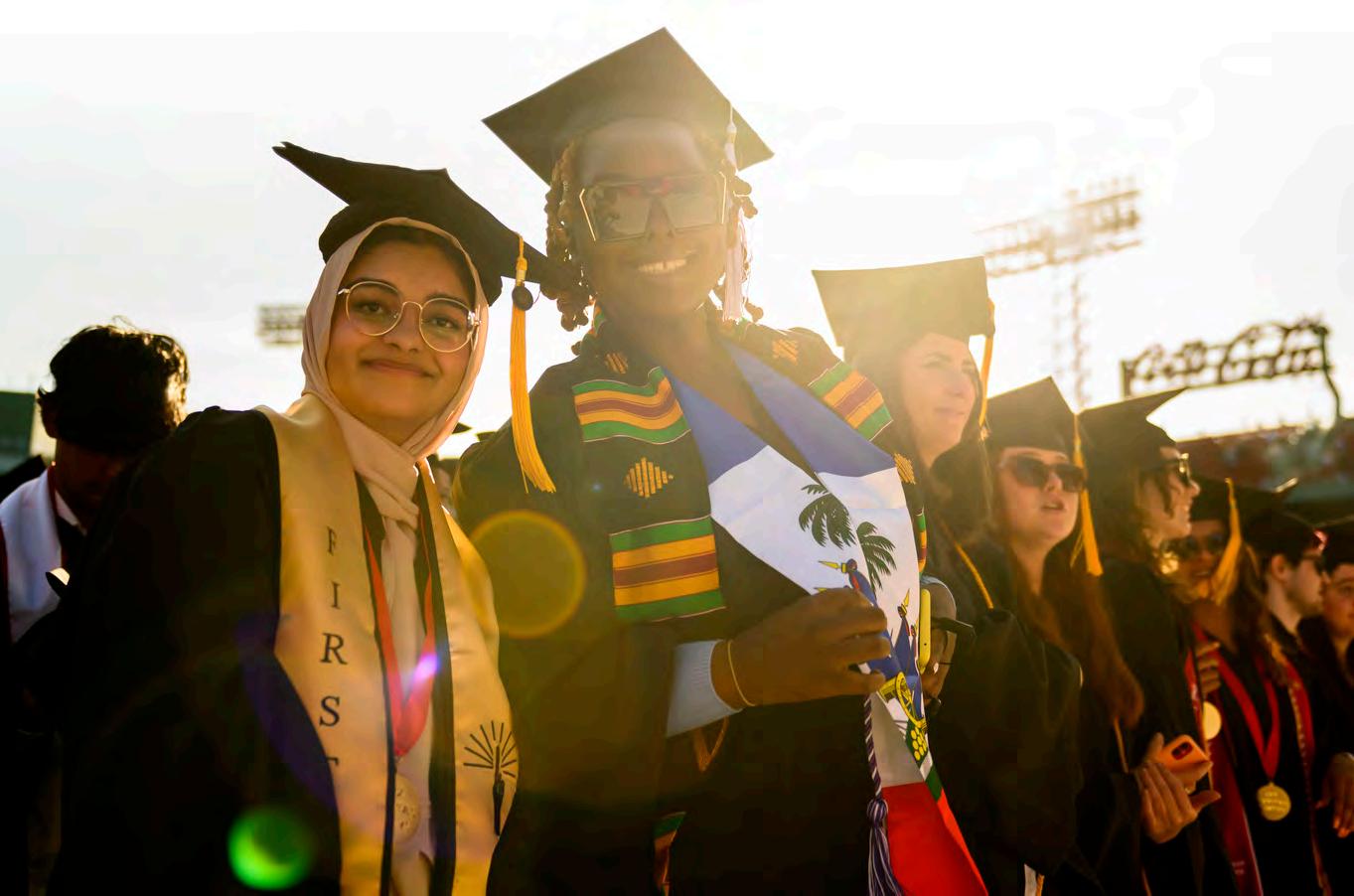
Northeastern University College of Engineering
360 Huntington Avenue, 230 SN
Boston, MA 02115
coe.northeastern.edu
